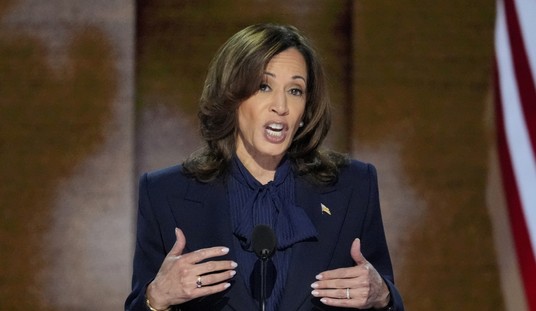Yesterday’s swearing in of the new House and Senate, including the transition of power to Speaker Boehner and the new Republican majority in the House, inaugurates a new political season, in which “the deficit” promises to be front and center. President Obama is already sending up trial balloons about various proposals made by the Bowles-Simpson deficit commission. But Republicans should resist efforts to frame the debate as being about “the deficit,” because that term itself focuses on the wrong measurement.
Democrats like to talk about the federal government’s operating budget deficit as if it is a matter of balancing income against spending. It’s not. The money taken in by the federal government is taxes, but taxes are not income; they are simply a subset of the income of the private sector, in the same way that the money you withdraw from your bank account is only a subset of your bank balance. If you want to know whether you can afford to buy something, you look to the size of that bank balance (and the sources of real income that go into your deposits), not simply into whether you withdrew enough money to pay the latest credit card bill.
The mistake made in talking about “the deficit,” then, is in assuming that fiscal responsibility comes from matching public spending with the government revenues used to pay for that spending in the short term, rather than with the actual income produced by the private sector. It is the money thrown off by the private sector that is the ultimate source of all public spending, and therefore any sane measurement of real fiscal responsibility will measure the outflows (public spending) as a fraction of real income (private sector income) rather than the intermediate step of taxing real income. The larger that fraction is, the less the private sector has to work with to continue producing growth and a high standard of living; in short, the more of our private sector income we are spending today on government, the less we will have to leave to our children, regardless of how high or low we set our tax rates. Put another way, the problem isn’t that the government is spending more than the government takes in, but that the government is spending too much of what we create. (Keynsian economics, which is based on trying to create short-term growth with public spending, is fatally flawed because it ignores all but the shortest term effects of public spending – a predictable failing in the work of a childless economist and a director of the British Eugenics Society). Anybody who tells you that the federal budget operating deficit is a better measure of fiscal responsibility than comparing public spending to private sector income is simply trying to mislead you and isn’t serious about long-term fiscal responsibility.
Moreover, the broader question isn’t just federal spending, but all public spending, federal, state and local, although a good start to keeping a restraining hand on state and local spending is to refuse to use the federal government’s fiscal printing presses to bail out imprudent state and local governments, and in the long run stop using Washington as a tax collector for state and local governments, as happens in the myriad ways that revenues are raised nationally and then laundered back to the states.
As I have explained before, the federal budget deficit is only a symptom, and an imprecise one at that. Public spending of privately created resources, depleting the source of future growth, is the disease. If we restore the proper balance of robust private sector growth to a limited public sector, we’ll have no problem in the long run handling any operating deficits; if we don’t, the size of the operating deficit will be the least of our concerns. If the GOP is serious about setting our fiscal house in order, the new Republican majority must resist at every turn the urge to treat the symptom rather than the disease.















Join the conversation as a VIP Member